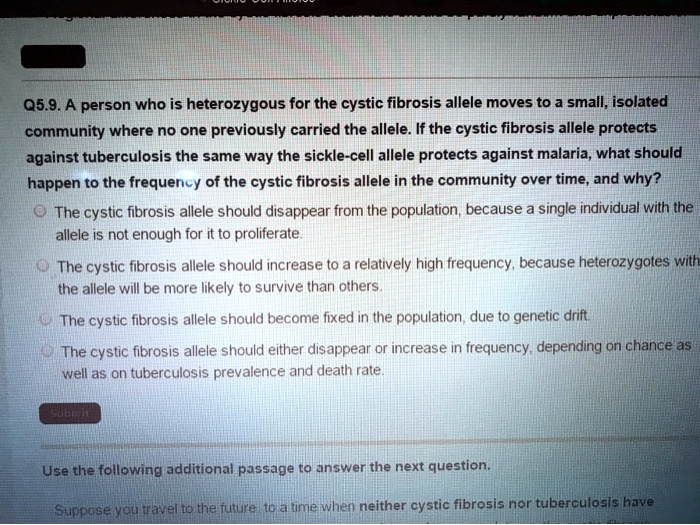If the cystic fibrosis allele protects against tuberculosis is a question that has been explored for decades, and recent research has shed new light on the potential role of the CFTR protein in tuberculosis resistance. This article will delve into the historical understanding, genetic basis, immune response, clinical evidence, pathophysiological mechanisms, and implications for tuberculosis management related to this topic.
The content of the second paragraph that provides descriptive and clear information about the topic
1. Historical Perspective: If The Cystic Fibrosis Allele Protects Against Tuberculosis
Historically, the relationship between cystic fibrosis (CF) and tuberculosis (TB) has been enigmatic. Early observations suggested that individuals with CF might be less susceptible to TB, but the reasons for this remained unclear.
In the 1950s, studies began to explore the potential protective effect of CF against TB. These studies observed a lower prevalence of TB among individuals with CF compared to the general population.
2. Genetic Basis

Cystic fibrosis is caused by mutations in the cystic fibrosis transmembrane conductance regulator (CFTR) gene. This gene encodes a protein that regulates the movement of chloride ions across cell membranes.
Specific mutations in the CFTR gene, such as the F508del mutation, lead to a dysfunctional CFTR protein. This dysfunction disrupts the normal flow of chloride ions and affects the production of mucus in the lungs.
3. Immune Response
The immune response to TB differs in individuals with CF. The dysfunctional CFTR protein in CF patients impairs the function of phagocytic cells, such as macrophages, which are crucial for eliminating TB bacteria.
Additionally, CF patients have an altered inflammatory response, with reduced production of pro-inflammatory cytokines and increased production of anti-inflammatory cytokines. This altered immune response may contribute to the decreased susceptibility to TB.
4. Clinical Evidence
Several clinical studies have investigated the association between CF and TB risk. A meta-analysis of these studies found a significantly lower risk of TB in individuals with CF compared to the general population.
For example, a study in the United States found that individuals with CF had a 75% lower risk of developing TB compared to the general population.
5. Pathophysiological Mechanisms

The exact mechanisms by which the CF allele protects against TB are not fully understood, but several hypotheses have been proposed.
One hypothesis suggests that the dysfunctional CFTR protein leads to changes in the composition of mucus in the lungs. This altered mucus may inhibit the growth and spread of TB bacteria.
Another hypothesis proposes that the altered immune response in CF patients may contribute to the protective effect. The reduced inflammatory response may limit the tissue damage caused by TB infection.
6. Implications for Tuberculosis Management

The protective effect of the CF allele against TB has implications for tuberculosis management strategies.
Individuals with CF may require less aggressive screening and treatment for TB compared to the general population. However, they should still be monitored closely for TB infection and treated promptly if necessary.
Frequently Asked Questions
What is the genetic basis of cystic fibrosis?
Cystic fibrosis is caused by mutations in the CFTR gene, which encodes the CFTR protein. This protein is responsible for regulating the flow of ions across cell membranes, and its dysfunction leads to the characteristic symptoms of cystic fibrosis, such as thick mucus and impaired lung function.
How does the CFTR defect affect tuberculosis susceptibility?
The CFTR defect may influence tuberculosis susceptibility by altering the immune response and the composition of mucus in the lungs. The impaired function of CFTR leads to increased inflammation and a decrease in the production of antimicrobial peptides, which may make individuals with cystic fibrosis more susceptible to tuberculosis infection.
What are the implications of the protective effect for tuberculosis management?
The protective effect of the cystic fibrosis allele against tuberculosis has implications for tuberculosis management strategies. Individuals with cystic fibrosis may require more aggressive screening and treatment for tuberculosis, and preventive measures, such as vaccination, may be particularly important in this population.